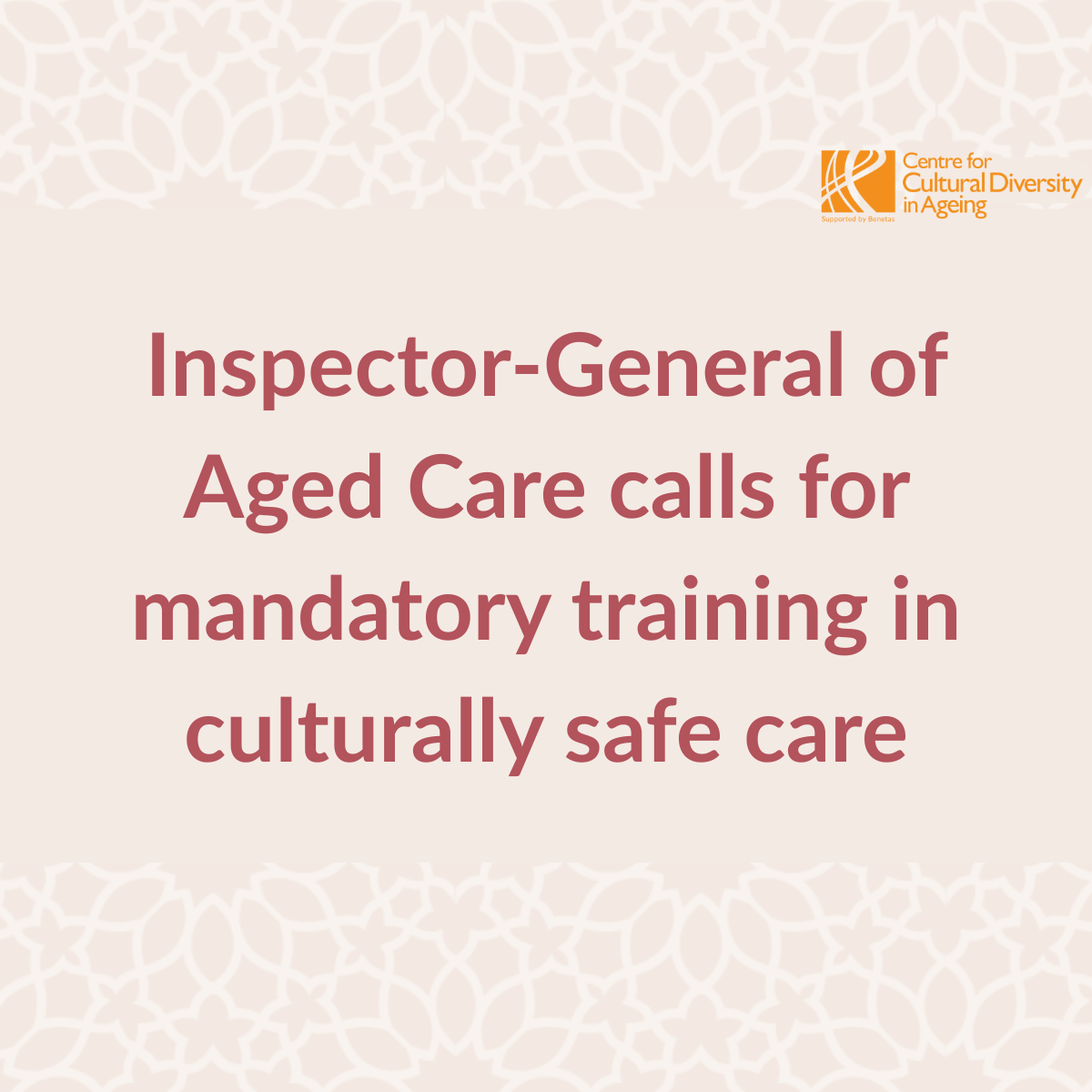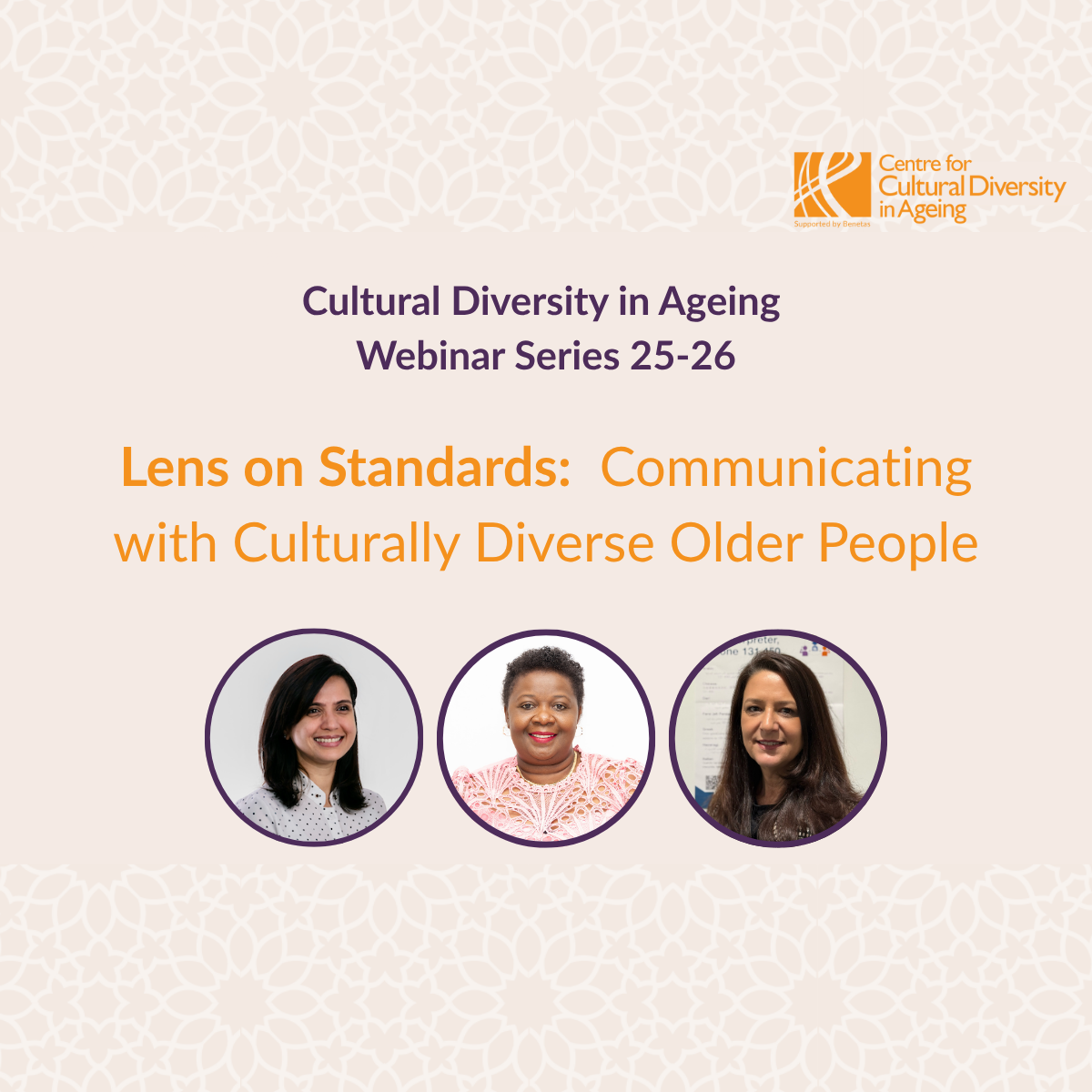Research findings about interpreter use in residential aged care should raise concerns
The PRACTIS (Primary health and Aged Care Translation and Interpreting Services) project (Phase 2), led by Monash University researchers has released a summary of its key findings. The Centre for Cultural Diversity in Ageing is a stakeholder partner of the project. Phase 2’s study surveyed Australian residential aged care staff to understand how they communicate with residents with limited English proficiency. 52 responses were received nationally from aged care staff in 9 occupational groups (e.g. nurse, personal care worker, allied health professional) employed by all organisation types (e.g. private, public, charitable).
The research found aged care staff regularly adapt their communication with residents with limited English proficiency using simplified spoken English, non-verbal communication, and the use of words in residents’ preferred languages in a range of care interactions. Regular use of language/cue cards, bilingual staff and families also occurs during activities of daily living and health emergencies. Somewhat less than one quarter of participants (14) also reported using Google Translate.
However, the research also turned up concerning findings in relation to the non-use of formal interpreters. Despite expressing a willingness to use professional interpreters in the future, most participants had never used one. This creates risk for both individuals using aged care services and services themselves. Critical areas include agreements between individuals and services, ascertaining people’s choices and preferences as part of planning care, as well as health professional interaction and advance care planning.
The Centre notes to readers the data published by the Australian Institute of Health and Welfare (AIHW)[1] which shows that 26.2% of people who used approved provider services as at 30 June 2024 were born in a non-English speaking country. 14.13% spoke a preferred language other than English. In 2023–24, of the 835,000 people, who were assisted under the Commonwealth Home Support Program, 21% were born in non-English-speaking countries.
Subsection 23(8) of the new Aged Care Act is clear,
"An individual has a right to communicate in the individual’s preferred language or method of communication, with access to interpreters and communication aids as required".
The Centre reminds approved providers and funded CHSP services, to ensure your organisation knows how to access free interpreting with the national Translating and Interpreting Service (TIS National). We also suggest that if staff have not used interpreters previously to invest some time in staff training in the use of an interpreter. The Centre has a useful practice guide on accessing TIS and using interpreters at: Accessing-Interpreting-Services.pdf
The PRACTIS 2 findings summary can be downloaded from: http://bit.ly/4mq85v9
[1] GEN Aged Care Data: People using aged care service CURF data sourced from: https://www.gen-agedcaredata.gov.au/resources/access-data/2025/april/gen-data-people-using-aged-care

